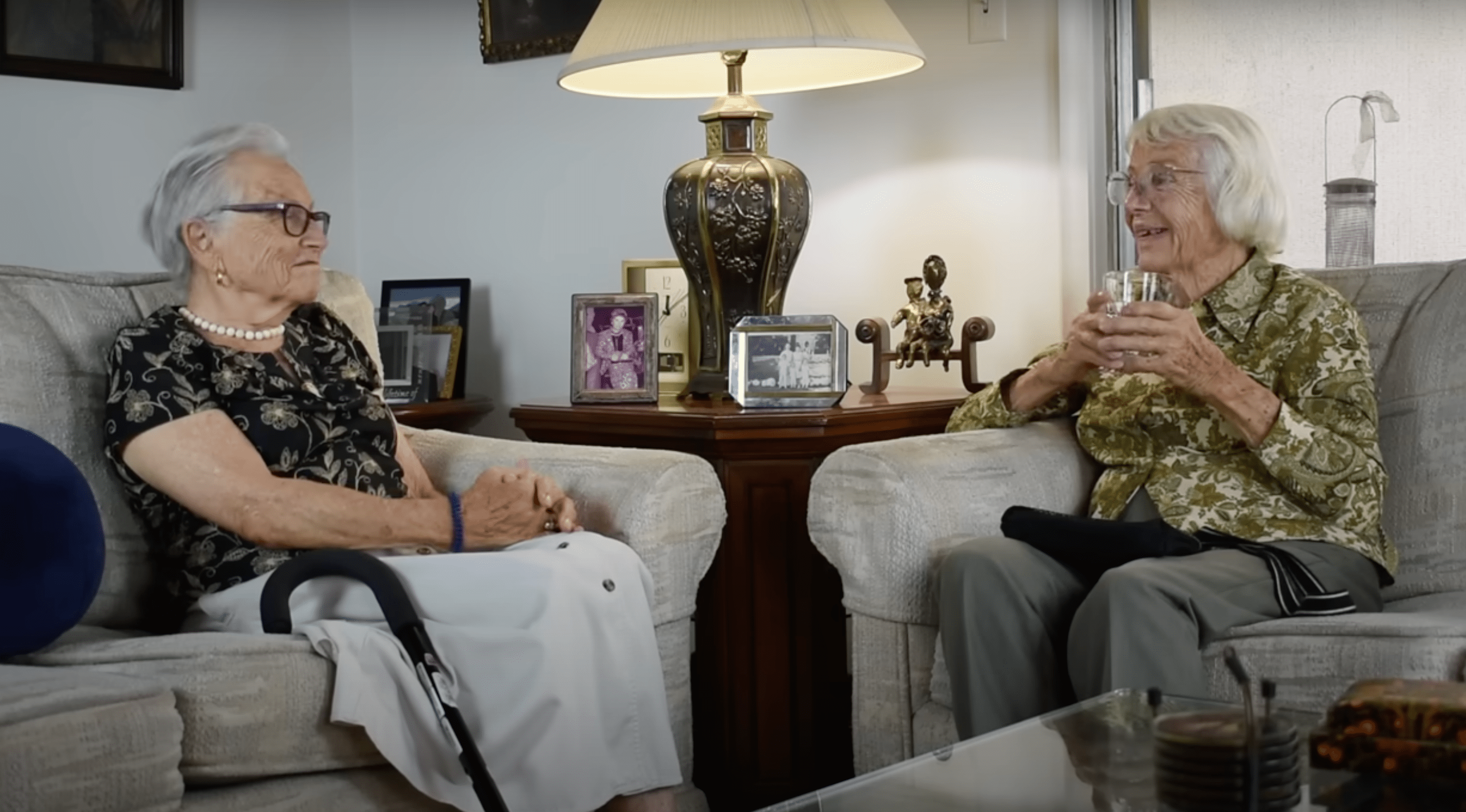
It’s so easy to see our enemies as — well, enemies. What does it take to re-see them as human?
Late in life, Erika Jacoby and Ursula Martens took an incredible journey. Not the sort of journey that takes you by jet halfway around the world. No, the sort of journey that lets you sit on a couch and travel to a deep and shocking place of empathy with someone you never imagined you might meet. That sort of journey can take you much farther than the most distant destination available on a plane flight. And it costs nothing, at least in dollars.
As youth, Erika and Ursula’s societies cast them on opposite sides of the political fence to the point that one joined a group that classified the other as worthy of annihilation. At 14, Ursula was a Hitler Youth leader in Germany. At 16, Erika was taken with her mother from Hungary to Auschwitz (and then to other concentration camps). Both girls survived the traumatic era encircling their lives. Both ended up living in Los Angeles. And, in their late 80s, both met — introduced by Tess Cutler, a journalist who learned about them both. The conversation that ensued may seem miraculous. But, really, it is all too ordinary.
These women had every reason to loathe each other. One had been taught early in life to see the other as sub-human, hence lured into participating in the apparatus of a killing machine constructed on a never-before-seen scale. The other had been taught to fear the first, for her early participation in that violent regime.
Yet, seven decades later, Erika and Ursula met not as enemies but as fellow humans. The intermediary who introduced them videotaped their conversation, then shared it with the rest of us.
What is the emotional cost of this sort of reconciliation? We might easily imagine it being insurmountable. How can we re-categorize someone we targeted as sub-human —or, conversely, someone who targeted us as sub-human — as worthy of our time and kindness? Doing so impels us to challenge a world view for which we must have long had unconscious but deep loyalty. Ursula and Erika show us how to reorient those assumptions. And, in this quiet living room in Los Angeles, the cost seems negligible, while the benefits appear infinite.

You can read how Tess Cutler decided to suggest introducing Ursula and Erika to one another here; check out I Held the Sun in my Hands, a memoir that Erika wrote late in life about how she survived brutality in Hitler’s concentration camps, here; and view the video of Erika and Ursula’s quietly amazing conversation here. Make sure you watch to the end: you’ll find an incredible surprise about how they decided to continue their relationship.
In these dark times, when fascism has come knocking on our door and, incredibly, we have collectively offered entrance, we all need reasons for hope and models of courage. Today, this story is mine.
Related






